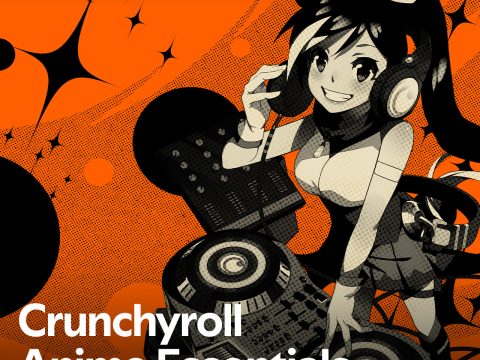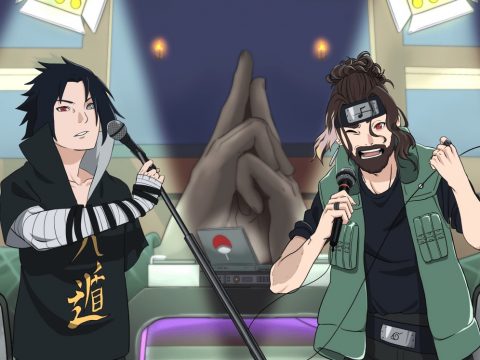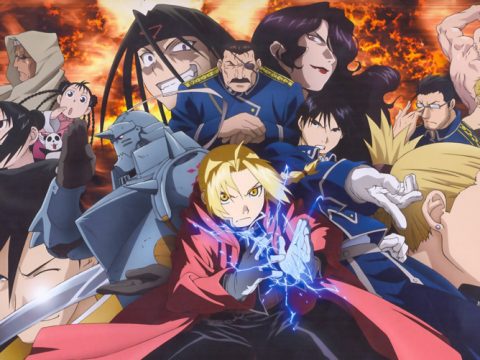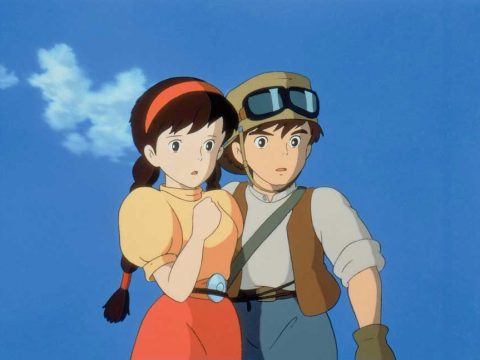The Captains
In a Cage of Roses
Last G.S. Records, 2007

“Have you ever heard The Captains? They’re one of my favorite bands right now. I’m currently working on setting up a fall US tour for them and I’m also going to be releasing their first domestic CD/DVD later this summer.”
So went the e-mail from Eric Bressler. Seems he’s intent on following up directing the documentary film Otaku Unite! (available from Central Park Media) by putting his life in the hands of a rock and roll band. So what sort of musical act inspires such fevered devotion from its fans?
Dig it. The Captains look and sound like an act that’s just been defrosted, Austin Powers-style, from Japan’s “Group Sounds” craze of the 60s. Imagine the Beatles have just played the Budokan and suddenly everyone wants records by guys in skinny trousers with songs heavy on the “hey hey heys” and “la la las.” That’s just what dozens of “G.S.” acts like The Gold Cups and The Spiders gave the public until the thrill wore off a few years later and “real Japanese rock” (minus the funny clothes) finally arrived with Happy End in the 1970s.
But the Captains look like they were in short pants when the gods of Group Sounds ruled the charts. Unable to have actually participated in the G.S. movement themselves, they have their work cut out for them. As the liner notes explain, “The Captains are the last Group Sounds. It’s Grooooooovy.”
Although the band looks the part in “Kaiser Bill’s Batman suits,” the Captains-like their G.S. inspirations-don’t actually deal out a big beat or head-whirling psychedelia. The sound is as much influenced by Japanese Kayokyoku (“popular music”) and enka as it is by the Beatles and their ilk.
The songs often unfold in minor keys and have an undeniably traditional feel, although enacted with surf guitars instead of shamisen strings.
The main subject is love, love, love and most of the songs on the Captains fifth record In a Cage of Roses explode with over-the-top romanticism. The variety comes via the angle of the Captains’ attack. The opening tracks “Hato ni Pitoin” and “Poolside Beachside” are the eager to impress rockers complete with handclaps and (in the latter’s case) breathless vocals and time changes.
By the time the record reaches its midpoint with “Cassiopeia,” ballads have firmly taken over. Fortunately, they all sound suitably dramatic and massive. Also lurking near the tail end is my favorite track, “Fyunohotal,” a tip of the hat to producer Phil Spector built around the “Be My Baby” drumbeat.
Weirdly enough, the album, which until now has played like a pious ode to the past, ends with a puzzling throwaway hip-hop joke of a song. But the song is surprisingly funky and now begs the question, which sound do the Captains stand a better chance of conquering America with? The groovy Group Sounds style, or the lowest common denominator?
Websites: https://thecaptains.jp/
https://www.myspace.com/thecaptainsofficialmyspace
Unicorn Table
Uncountable
King Records (distributed in the US by TenBu Productions)

The pair who makes up j-pop combo unicorn table can boast of a pretty impressive pedigree. The band has contributed themes to the anime Jinki: Extended (available from ADV Films) and the recent School Rumble. On her own, singer and songwriter Salia has crooned tunes for Cutey Honey: Flash, Vandred, and even a sentai show with an ending theme for GaoRanger. Meanwhile, composer, producer, and multi-instrumentalist shin-go has appeared on the soundtrack for the live-action Casshern film in addition to the Solty Rei anime.
Their 2007 CD, uncountable, is mighty impressive as well. It offers 10 tracks of modern guitar-driven J-pop with just enough electronics and off-kilter production touches to keep it from ever sounding predictable. Among the top cuts on the disc are “Fly Away,” which goes from head banging guitar pyrotechnics to gentle piano balladry, and back, on the turn of dime. “TV Babies” is a straight-ahead dance floor rocker with a deep bass sound.
But the best of the bunch is power ballad “Amai Yume,” which employs a martial drum machine beat before Salia’s heroic vocals go double tracked to deliver a huge and memorable chorus. It’s just a jaw-dropping song that keeps building and building until it hits spectacular heights.
Between shin-go’s rock attack and Salia’s emotionally charged delivery, unicorn table’s overall effect should appeal to J-poppers who enjoy music on the Tommy Heavenly6 end of the spectrum.
The CD booklet helpfully contains all the lyrics in romanji so you can sing along whenever the band performs live in the US, which is happily, quite often.
Websites: https://www.unicorntable.com/
https://www.myspace.com/tenbuproductions







